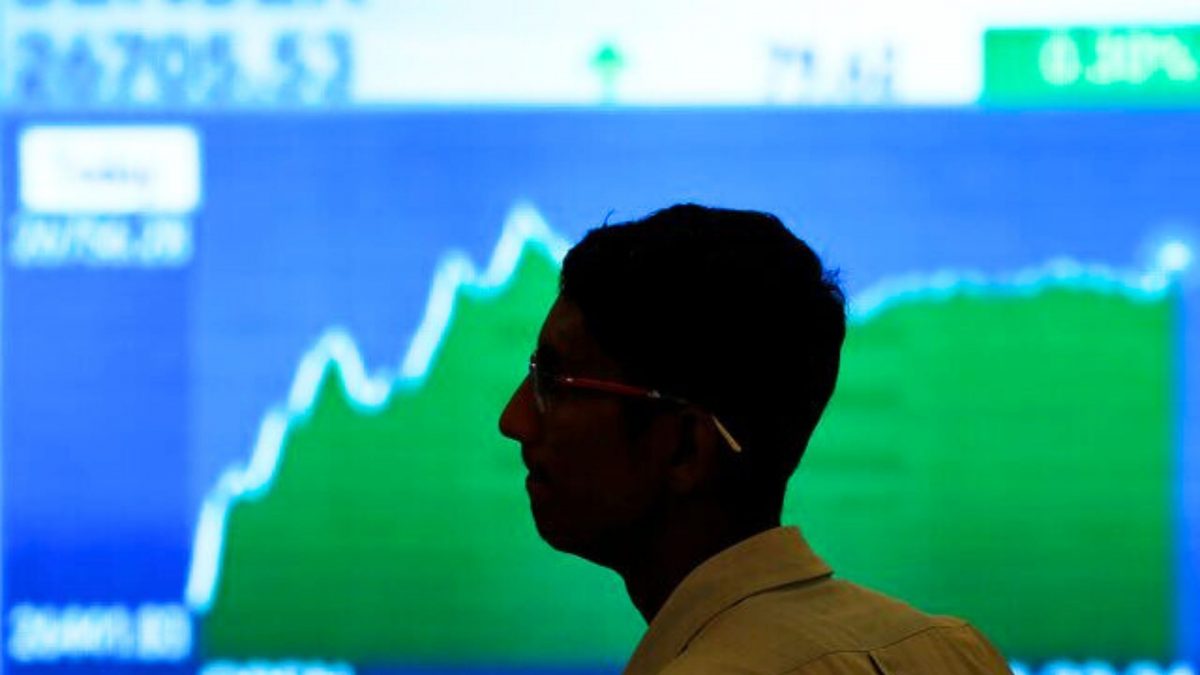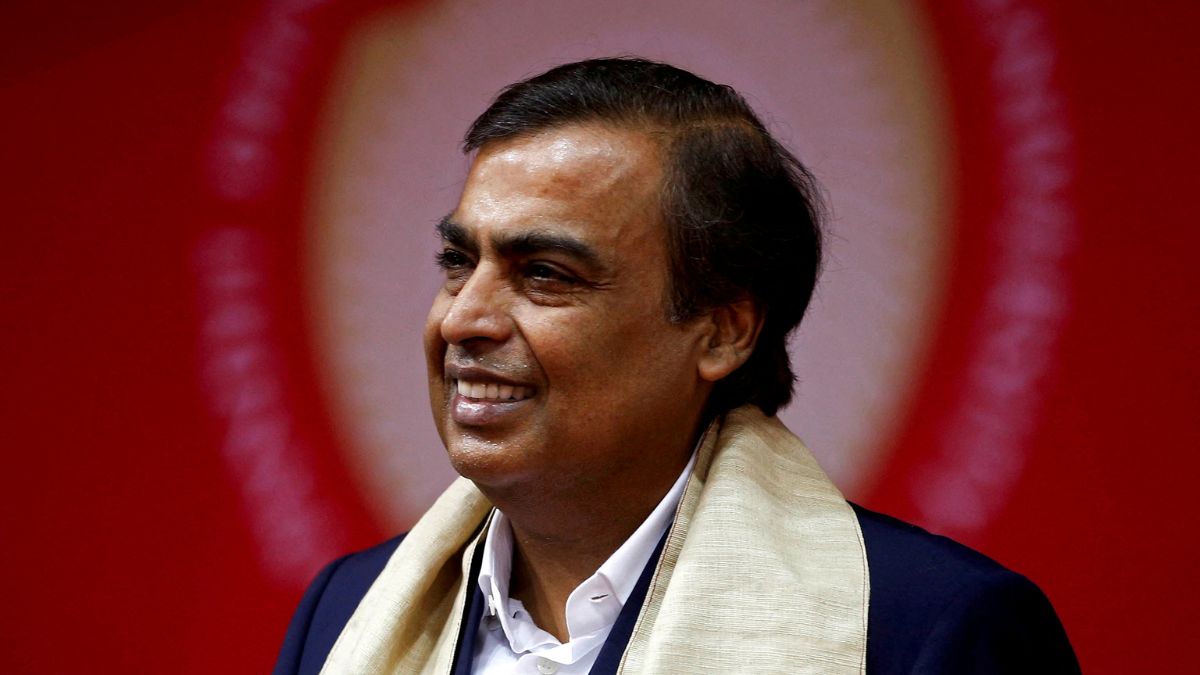Predicting whether the Sensex and Nifty will soar or plummet in Budget day is no easy feat. Movements are influenced by the specific announcements in the budget as well as other prevailing economic factors. Here’s a look back at how the stock market has reacted on Budget Day from 2014 to 2024 read more
)
A man looks at a screen displaying news of markets update inside the Bombay Stock Exchange (BSE) building in Mumbai. File image/Reuters
Finance Minister Nirmala Sitharaman is set to present the full budget for the financial year 2025 on Tuesday, July 23. The anticipation among investors is palpable. Budget day is usually expected to be a day of significant movement in the Indian stock markets.
However, predicting whether the Sensex and Nifty will soar or plummet is no easy feat. For insights, here’s a look back at how the stock market has reacted on Budget Day from 2014 to 2024:
2024: Budget day ends flat
In the volatile session on February 1, 2024, Indian equity indices ended with little change. The Sensex was down 106.81 points or 0.15 per cent at 71,645.30, and the Nifty was down 28.20 points or 0.13 per cent at 21,697.50. The market reaction was tepid due to the inline Interim Budget with no big announcements.
2023: Optimism and volatility balance out
On February 1, 2023, the Sensex climbed 158.18 points or 0.27 per cent to settle at 59,708.08 after trimming most of its intra-day gains, while the Nifty declined 45.85 points or 0.26 per cent to end at 17,616.30. Early optimism from the budget’s strong emphasis on consumption and capex was overshadowed by volatility due to the Federal Open Market Committee (FOMC) meeting and movement in Adani group stocks.
2022: Market cheers budget announcements
The 2022 budget saw a positive market reaction, with the Sensex ending 848 points higher at 58,862 and the Nifty rising 237 points to 17,576. The market responded well to the announcements, meeting expectations with no unexpected surprises. However, banking stocks dipped as there was no major mention regarding the sector in the budget.
2021: Sharpest budget rally ever
February 1, 2021, witnessed the sharpest budget rally in absolute terms. The Sensex soared 2,315 points or 5 per cent to close at 48,601, while the Nifty index surged past the 14,000 mark, ending at 14,281. The rally was driven by the absence of changes in direct taxes and the announcement of no Covid tax on the super-rich.
2020: Market tanks on budget disappointment
On February 1, 2020, the Sensex dropped nearly 1,100 points during intra-day trades, settling at 39,735.53, down 987.96 points or 2.43 per cent. The Nifty ended at 11,661.85, down 300.25 points or 2.51 per cent. Investors were disappointed by the budget’s perceived lack of measures to revive the slowing economy.
2019: Dual budget year, mixed reactions
In 2019, there were two budget presentations. The interim budget on February 1 saw the Sensex rise 212 points to 36,469.43 and the Nifty advance 62.7 points to 10,893.65. However, the full budget on July 5 resulted in a decline, with the Sensex falling 395 points to 39,513.39 and the Nifty dropping to near the 11,800 mark. Negative reactions were attributed to announcements such as increased income tax for high net-worth individuals (HNIs) and no mention of fiscal deficit.
2018: Volatility and marginal decline
February 1, 2018, saw a marginal decline in markets. The Sensex closed at 35,906, and the Nifty ended at 11,016. This was the first budget after the Goods and Services Taxes (GST) was implemented in 2017. Stocks of pharma and PSU banks performed poorly, leading to the dip.
2017: Fiscal discipline wins the markets
The markets responded positively on February 1, 2017, with the Sensex jumping nearly 486 points to close at 28,142 and the Nifty rising 155.10 points to 8,716.40. Investors were pleased with the fiscal discipline and clarity on FPI taxation, along with proposals of infusing Rs 10,000 crore in public sector banks and maintaining the existing capital gains tax rates.
2016: Negative sentiment over dividend tax
The budget on February 29, 2016, was not well received. The Sensex fell 152.30 points to 23,002, and the Nifty dropped 42.70 points to 6,987.05. Negative market sentiment was driven by the proposed taxation of dividend income for high net-worth individuals.
2015: Modest gains
The budget presented on February 28, 2015, saw the Sensex rise 141.38 points to 29,361.50, and the Nifty advance 57 points to 8,901.80. Markets remained open on this Saturday to allow investors to respond to the budget.
2014: Positive interim, negative full Budget
In 2014, the interim budget on February 17 was accompanied by stock market gains, with the Sensex rising 97.20 points to 20,464.06 and the Nifty climbing 24.95 points to 6,073.30. However, the full budget on July 10 saw a decline, with the Sensex falling 72.06 points to 25,372.75 and the Nifty dropping 17.25 points to 7,567.75.
No clear trend
Analyzing the data from 2014 to 2024, it’s evident that there is no consistent trend in how the stock market reacts on Budget Day. Movements are influenced by the specific announcements in the budget as well as other prevailing economic factors. This time around, experts suggest there might be positive movement. However, investors should consider not only the budget but also global and domestic developments before making any investment decisions.
Dr V K Vijayakumar, Chief Investment Strategist at Geojit Financial Services, stated, “It is important to understand that the market expects a positive Budget which is growth-oriented and fiscally prudent with income tax reliefs for the middle class. Also, the market expects status quo on the Long Term Capital Gains taxation. If there is any disappointment in these areas the market can react negatively. On the other hand, if the Budget delivers on expectations, aggressive retail buying can lift the market to new highs.”
While history provides valuable insights, it does not offer a foolproof guide to future market behaviour. Investors should approach Budget Day with a comprehensive view of the economic landscape.
With inputs from agencies

 1 month ago
33
1 month ago
33
)
)
)
)
)
)
)
)
)
)
)
)
)
)
)
)
)
)
)
)
)
)
)
 English (US) ·
English (US) ·